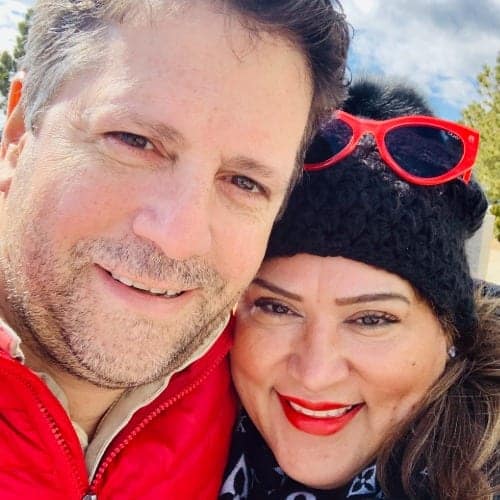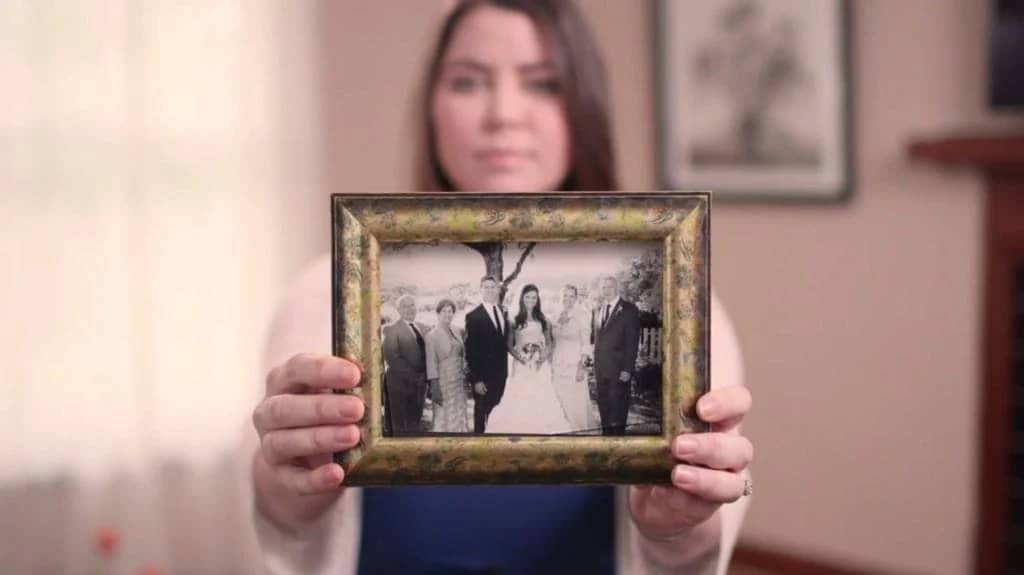
The following was published in Compassion & Choices’ Fall 2020 magazine (page 8).
When Cecilia Vasquez-Vigil and her husband Paul took a road trip to Mount Rushmore and Las Vegas for
a spring break vacation in March, the novel coronavirus still seemed very far away. They were supposed to travel to Europe, but with the onset of the pandemic, they canceled. At the time, South Dakota and Nevada had very limited COVID-19 cases and both seemed like safe options. Cecilia, an educator from Brownsville, Texas, was happy to get away. They left for a week of sightseeing, shows, great dining and relaxation. They ended up with more than they bargained for.
After their return home, Cecilia’s symptoms started: a cough, body aches and severe fatigue. The cough was dry and the fever was as high as 105 degrees. At 8 a.m. on March 21, Paul rushed Cecilia to Memorial Hermann Katy Hospital near Houston. As a doctor administered the COVID-19 test, he said the words she feared most: “I’m pretty sure you have it. Your X-rays show pneumonia in the lobes. I’m admitting you and treating you as positive.”
What followed were 34 days of anxiety and desperation, knowing that there was no cure or vaccine for the virus that had already killed nearly 13,000 people worldwide. When Compassion & Choices spoke to Cecilia in June, more than 507,000 people around the globe had died from this horrible disease.
Cecilia is grateful that no one in her family — Paul, her stepdaughters or her son — contracted COVID-19. Still, the experience was simply terrifying. She did not think she would survive. She lay in bed in an already overwhelmed hospital for four days coughing up blood, hallucinating, with no sense of taste.
She knew that if she died, she’d likely die alone, or at best with medical staff who were supportive but not family. The fear of dying alone weighed heavily and got Cecilia thinking about her advance care planning. “One thing I wished I had done before getting sick and being hospitalized was to fill out and share my advance care directive with my family and healthcare providers,” she said.
Advance care planning documents spell out what care you do and don’t want, and designate a proxy to make medical decisions for you in case you can’t speak for yourself. In the event that your proxy can’t be with you at the hospital, you can bring a copy of your advance directive with you and record a short video on your phone about your end-of-life wishes to show medical providers.
Previously, Cecilia had not really considered end-of-life planning a priority. But as a former hospice volunteer, she understood the impact of that decision once she got sick. From the hospital, she called her cousin. “Take care of Max,” she said. “Take care of Mom,” she said, trying to manage whatever details she could.
Next, she called her attorney.
Contracting and dealing with COVID-19 started Cecilia and her family on a journey of end-of-life discussions and planning. After working with her attorney, Cecilia contacted a friend who works at Compassion & Choices and learned of the free bilingual resources available on our website. “I wish I had known these resources were available to me and my family at the outset,” she said. “I hope by sharing my story, others will understand and use these resources.”
With limited beds for COVID-19 patients, the hospital discharged Cecilia after six days to make room for someone in more acute need. She spent the next 24 days recovering at home, isolated in one room. She was unable to hug her son or husband, and was still in a lot of pain, suffering from high fevers. “I endured over a month of anxiety,” she recalled.
Cecilia’s gratitude — and frustration — are apparent. “I thank Jesus for helping me survive this horrible illness, and I pray to God that my Hispanic brothers and sisters and all people who are suffering will survive this pandemic. Unfortunately, Hispanics and people of color are dying at a disproportionate rate from the coronavirus compared to other Americans. We have to do better for everyone.”
Cecilia finally tested negative twice, as required to break quarantine, in mid-April and received her letter from the state confirming that she had completed her state-mandated isolation. Three months later, Cecilia was still suffering from the effects of the illness. She has scarring on her right lung. She is losing her hair, and her hearing is slightly impaired as a result of having had COVID-19. Her respiratory system will never be the same again.
One good thing has come out of this: Cecilia’s affairs are in order. She has also inspired those around her to complete their end-of-life planning. Paul has put plans in place for himself. Cecilia’s ex-husband worked with her to complete their documentation, since they co-parent a son. After some resistance, Cecilia’s brother Carlos made his plans, as well. He named her executor of his will and sent an email with the subject line, “My Wishes,” documenting how he wanted to be laid to rest. Even Cecilia’s 90-year-old mother finally agreed to discuss her wishes for her burial.
Note: A few months after Cecilia’s ordeal with COVID-19, both her brother and mother contracted the virus. Her mother was intubated for two weeks before dying alone in a hospital room in Brownsville, Texas, on July 30, 2020.
My End-of-Life Decisions: An Advance Planning Guide and Toolkit
This guide helps you work through your end-of-life priorities and empowers you to have meaningful discussions with your family and healthcare providers. The toolkit includes forms for advance-care planning that can supplement your advance directive. In addition, our website links you to state-specific advance directives. The guide is available in both English and Spanish.
This guide will help you and your loved ones navigate the current healthcare system and explore how to approach your advance care planning if you or a loved one were to fall ill during the coronavirus pandemic. The guide is available in both English and Spanish.
Brownsville Herald – COMMENTARY: A year after mom’s death, COVID-19 is spiking again
Public News Service – COVID-19: TX Families Urged to Discuss End-of-Life Planning Over Holidays

Nothing advances our common cause of improving end-of-life care like real stories. Inspire others and drive change by sharing your story today.
Mail contributions directly to:
Compassion & Choices Gift Processing Center
PO Box 485
Etna, NH 03750